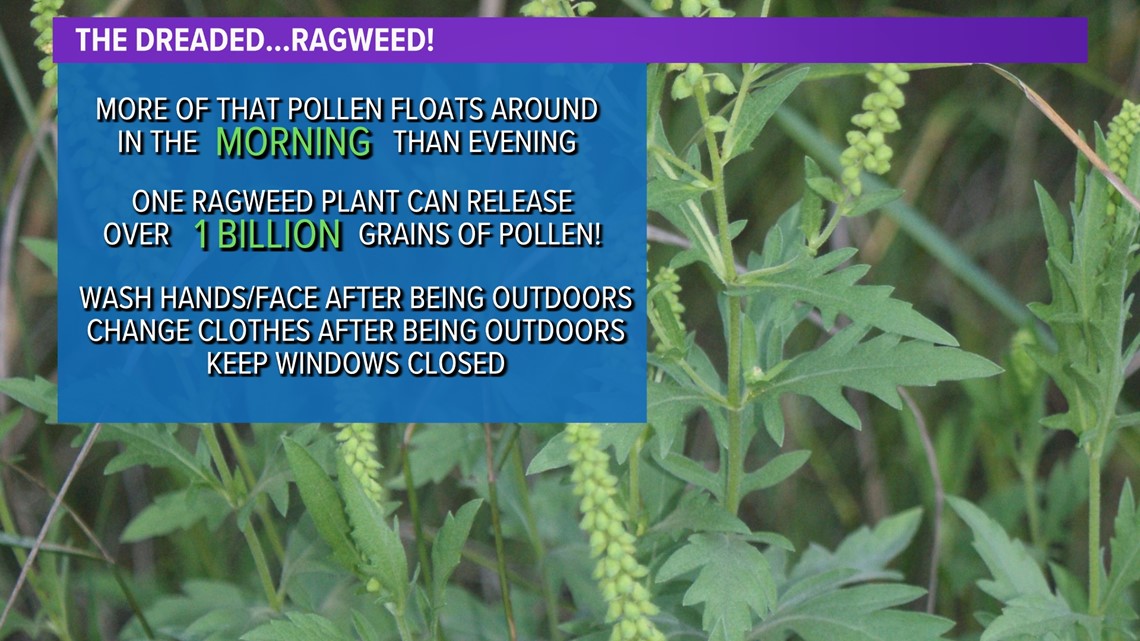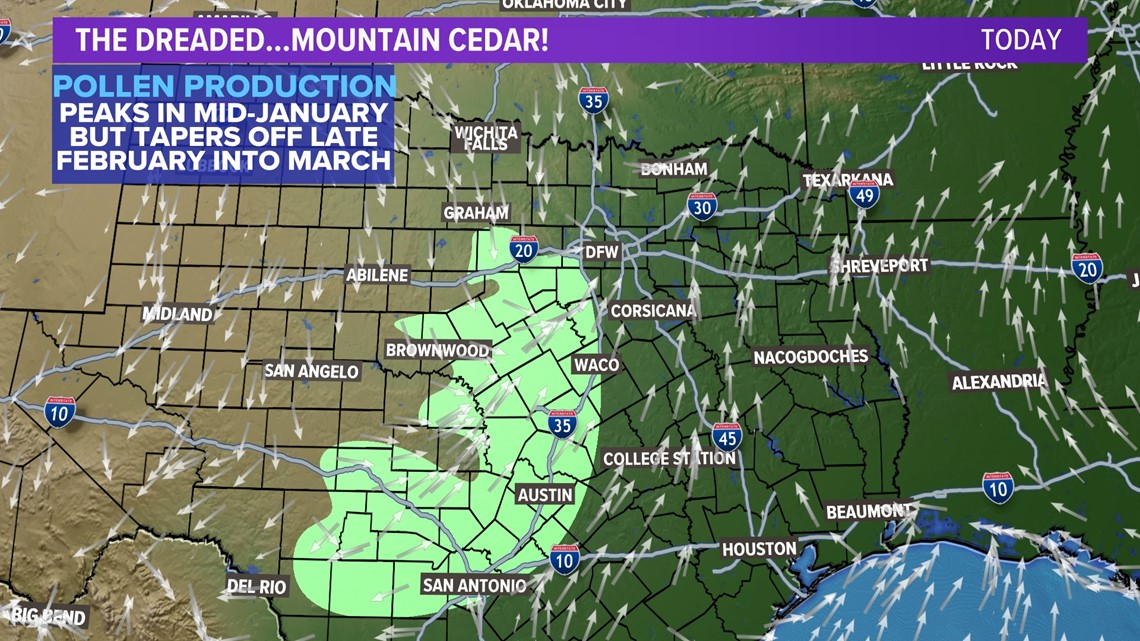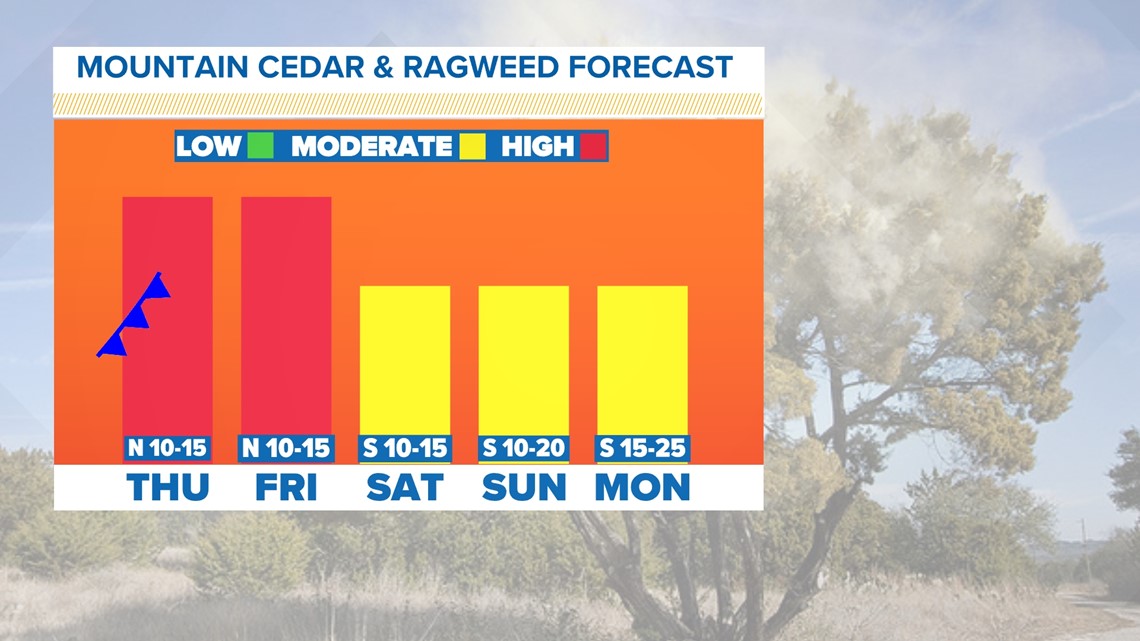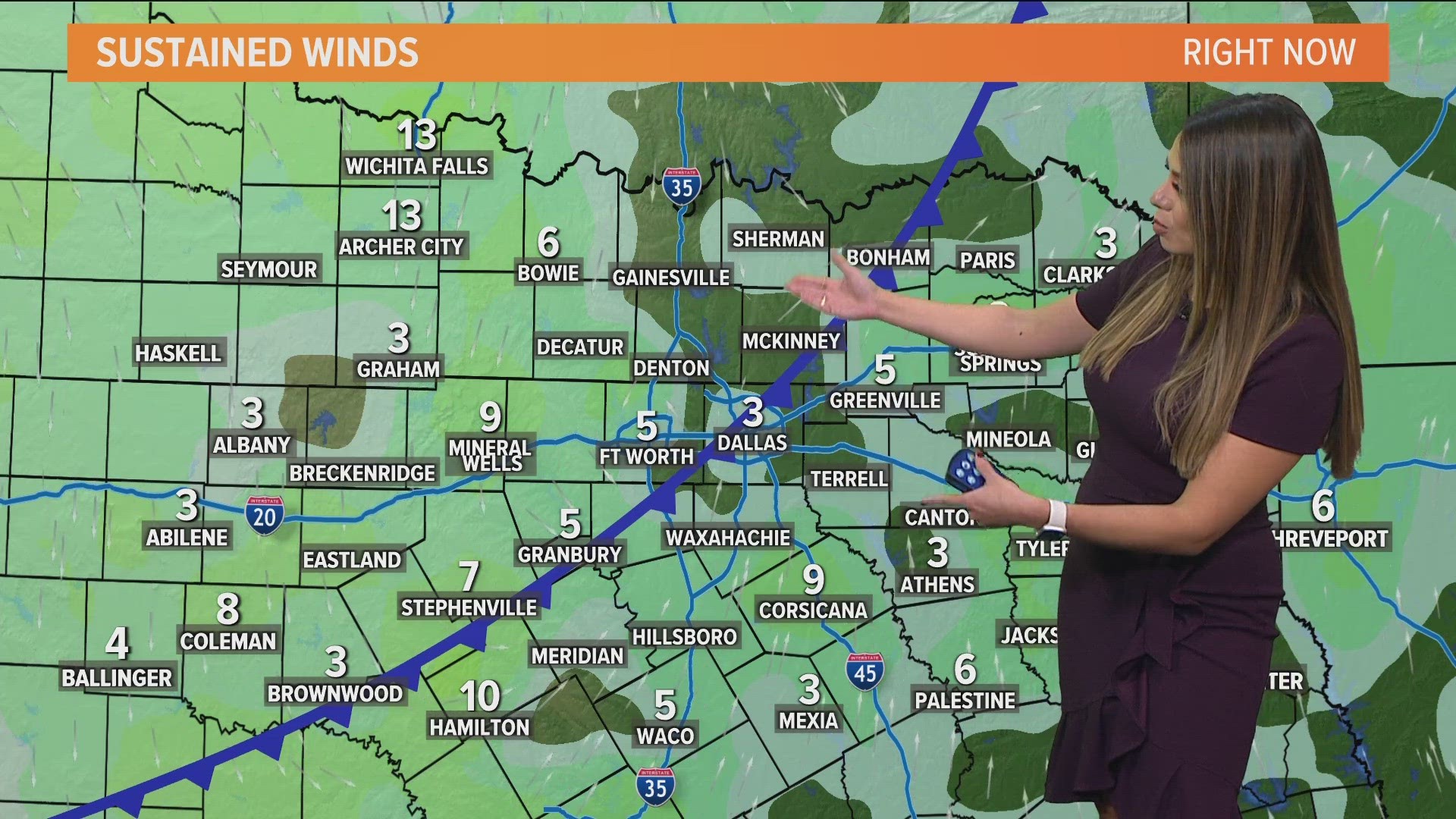DALLAS — It is always allergy season in North Texas. The biggest culprits today are ragweed and mountain cedar.
Depending on the season, something is always in bloom. Some trees are known to cause issues during the fall, but the biggest issue is caused by ragweed. Ragweed grows in and all-around North Texas.
In fact, 75% of people with plant allergies are sensitive to ragweed. Just one plant can release over one billion grains of pollen. The pollen floats around most in the morning. Anytime we have a breezy day between August to November, you can bet ragweed pollen is being thrown around. Ragweed season does not end until our first freeze which is, on average, November 22.


Mountain Cedar is here....and it is early
Mountain Cedar is a well-know allergen that impacts much of North and Central Texas. Mountain Cedar trees are most common in Central Texas, but some of our western counties also grow mountain cedar trees. The pollen that is released is known to cause big issues with itchy, watery eyes, runny nose and itchy skin. Some even experience "Cedar Fever." Generally, mountain cedar pollen season runs from late November through February.


Any time we have a strong south, southwest or west wind during mountain cedar pollen season, it tends to shake the trees and transport the pollen much more effectively. That is why we are expecting pollen counts for mountain cedar and ragweed to temporarily go up today and tomorrow. A dry front is currently to blame for the shift and increase in wind. This time of the year, the only thing that helps lower pollen count is rain. As of now, rain is not in the forecast until mid-week next week.



